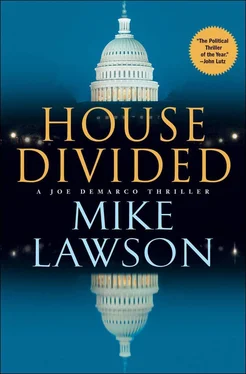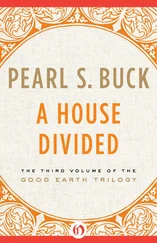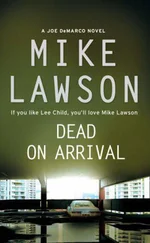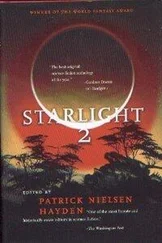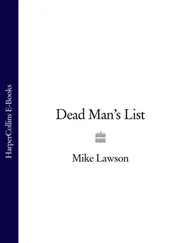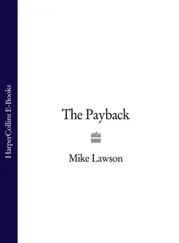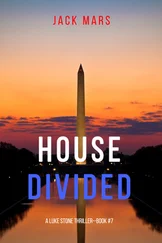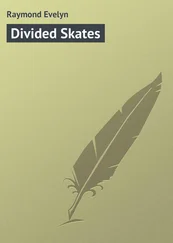Mike Lawson - House Divided
Здесь есть возможность читать онлайн «Mike Lawson - House Divided» весь текст электронной книги совершенно бесплатно (целиком полную версию без сокращений). В некоторых случаях можно слушать аудио, скачать через торрент в формате fb2 и присутствует краткое содержание. Жанр: Триллер, на английском языке. Описание произведения, (предисловие) а так же отзывы посетителей доступны на портале библиотеки ЛибКат.
- Название:House Divided
- Автор:
- Жанр:
- Год:неизвестен
- ISBN:нет данных
- Рейтинг книги:3 / 5. Голосов: 1
-
Избранное:Добавить в избранное
- Отзывы:
-
Ваша оценка:
- 60
- 1
- 2
- 3
- 4
- 5
House Divided: краткое содержание, описание и аннотация
Предлагаем к чтению аннотацию, описание, краткое содержание или предисловие (зависит от того, что написал сам автор книги «House Divided»). Если вы не нашли необходимую информацию о книге — напишите в комментариях, мы постараемся отыскать её.
House Divided — читать онлайн бесплатно полную книгу (весь текст) целиком
Ниже представлен текст книги, разбитый по страницам. Система сохранения места последней прочитанной страницы, позволяет с удобством читать онлайн бесплатно книгу «House Divided», без необходимости каждый раз заново искать на чём Вы остановились. Поставьте закладку, и сможете в любой момент перейти на страницу, на которой закончили чтение.
Интервал:
Закладка:
None of his poker-playing pals were violent men. George Aguilera had been the president of a telemarketing company that specialized in bilking old ladies out of their savings. Calvin Loring was a physician who had supplemented his income by supplying OxyContin to teenage addicts via the Internet. Medicaid fraud charges against him were pending. Clarence Goodman had been a hedge fund manager-and the designated fall guy for looting a union pension fund. The depressing part for Dillon was not that he was incarcerated with such people but instead that these three men were the best poker players at Allenwood-and they were uniformly atrocious. None of them, including the hedge fund manager, appeared to have the slightest understanding of the mathematical odds of a particular hand winning or losing. After Dillon had won enough cigarettes to become the Donald Trump of Allenwood, he began cheating. He had always been a good card mechanic and in prison he had plenty of time to practice and become a truly stellar one. He didn’t cheat to win, however. When it was his turn to deal, he would give all the players, except for himself, outrageously good hands-four of a kind, flushes, full houses-and then would sit back and watch them go crazy betting against one another. It was one of the things he did to alleviate the perpetual boredom.
Boredom was, in fact, the worst thing about being in prison-although if he had been sent to some other federal facility he might not have been able to say that. He had almost ended up in a maximum security prison in Ohio, where he would have undoubtedly become the plaything of one of the psychotics who resided there. Fortunately, and thanks to information he had obtained while at the NSA, he was able to keep that from happening.
It had all gone pretty much the way he’d expected: DeMarco had delivered the recordings to Justice Antonelli-and Antonelli believed every word he heard. DeMarco had figured out that Thomas Antonelli was the Thomas on Breed’s recording when he saw a newspaper photo of Antonelli at General Breed’s funeral and the accompanying article that said Antonelli was related to Breed’s wife. And then Antonelli did exactly what Dillon had thought he would do: he went immediately to the president and told him that if he didn’t clean up this whole NSA/Bradford mess, he was going to go public with everything.
Fortunately, at least from Dillon’s perspective, Antonelli was wise enough to realize that the U.S. government couldn’t let the entire world know what Charles Bradford had done because no one would believe that Bradford had been acting independently and without the sanction of his government. If Bradford had only killed a few Muslim terrorists, it might have been different, but Bradford had executed members of the Saudi, Pakistani, and Chinese governments-and the president really didn’t want to piss off the Chinese. Nor did the president particularly want it known the NSA was-once again-intercepting the communications of U.S. citizens without the required warrants.
The president assigned a special prosecutor-one of the few people in Washington actually capable of keeping a secret. The prosecutor questioned people in camera-meaning that none of his meetings were open to the public-and the records of those meetings were sealed for fifty years. The president figured that whoever was president half a century from now could decide if he or she wanted to declassify this god-awful debacle and let the world of the future know about it.
DeMarco was questioned several times by the prosecutor, and one time he was questioned with Dillon present. The prosecutor wanted to see if Dillon would deny any of DeMarco’s accusations-which Dillon didn’t. Dillon admitted that he had David Hopper and Colonel Gilmore killed but only to protect the lives of DeMarco and John Levy. He also admitted he planted bugs in Charles Bradford’s office and manipulated John Levy to kill Bradford. That is, he freely admitted he did his very best to rid the United States government of Charles Bradford while trying to keep secret everything Bradford had done. In other words, he admitted that he tried to do exactly what the president was now trying to do.
What Dillon refused to do was provide the names of anyone at the NSA who had helped him, and the only people DeMarco could identify were Alice and the three men who guarded him at the farmhouse in Maryland. But DeMarco didn’t know anyone’s last name, and Alice and the guards had disappeared. The one thing Dillon lied about was that he’d intercepted the transmission of Paul Russo being killed intentionally. He explained, in complex technical language, how the intercept had been inadvertently obtained due to “satellite malfunction.”
The president’s special prosecutor didn’t believe him.
Admiral Fenton Wilcox and his deputy director were fired and a new director was appointed to the NSA. The new director was a bright fellow, a three-star air force general who had previously worked at the agency, and he was told by the president that his first task was to ensure that the NSA was eavesdropping in accordance with all the rules. To assist the general in this task, seventy independent inspectors descended upon Fort Meade to review everything the agency was doing. Naturally, almost all the inspectors were former NSA employees because the new NSA director couldn’t find other people with the appropriate security clearance and the technical knowledge to do the review.
After six months of grueling work, the inspectors found a few minor compliance and procedural problems but failed to uncover the true nature of Claire Whiting’s secret division. One reason for this was because the day after DeMarco gave the recordings to Justice Antonelli, Claire’s personnel all began to perform legitimate-albeit less useful-functions, and the only American communications they intercepted while the inspectors were conducting their review were those permitted by FISA warrants. Claire’s ability to hide her true role in Dillon’s organization was also made easier by the fact that after Dillon was incarcerated, the new NSA director, deciding he needed to raise the glass ceiling at Fort Meade and have a few more women in high-ranking positions, concluded that Claire was the best person to fill Dillon’s former position at the agency.
The president’s special prosecutor also questioned the two young soldiers who had killed Paul Russo and the reporter, Robert Hansen. They sat there, shell-shocked, saying how they’d been told by John Levy that the men they had killed were foreign terrorists, and the prosecutor had no doubt the soldiers had been duped by Levy and the late Colonel Gilmore. The soldiers, however, knew nothing regarding Levy’s connection to Charles Bradford.
The prosecutor realized that there were probably ten or twenty soldiers out there, present and former members of the Old Guard at Fort Myer, who had committed assassinations under Bradford’s orders. He was sure all these dedicated young men had no idea that they had done anything illegal, and he was equally sure they had all been sworn to secrecy. And he was confident that Charles Bradford and Martin Breed had selected only men who could keep a secret. The prosecutor decided-and the president concurred-that it would be in everyone’s best interest to probe no deeper into the activities of the Old Guard. Without a Charles Bradford to lead them, the sentinels who guarded the Tomb of the Unknown Soldier would go back to being nothing more than exceptional sentinels.
Charles Bradford, as Dillon had expected, presented the president with an impossible dilemma. There was no direct evidence proving Bradford had ordered Martin Breed to assassinate anyone-and Bradford, when questioned by the prosecutor, denied giving Breed any such orders. Bradford said he may have supported in principle what Breed had done, but he would never have acted in such a unilateral, illegal, and dangerous manner. And he noted that, at the end of his life, Martin Breed had been afflicted by a terrible case of brain cancer, and the last time he saw Breed, the man had been unable to distinguish reality from fantasy.
Читать дальшеИнтервал:
Закладка:
Похожие книги на «House Divided»
Представляем Вашему вниманию похожие книги на «House Divided» списком для выбора. Мы отобрали схожую по названию и смыслу литературу в надежде предоставить читателям больше вариантов отыскать новые, интересные, ещё непрочитанные произведения.
Обсуждение, отзывы о книге «House Divided» и просто собственные мнения читателей. Оставьте ваши комментарии, напишите, что Вы думаете о произведении, его смысле или главных героях. Укажите что конкретно понравилось, а что нет, и почему Вы так считаете.
